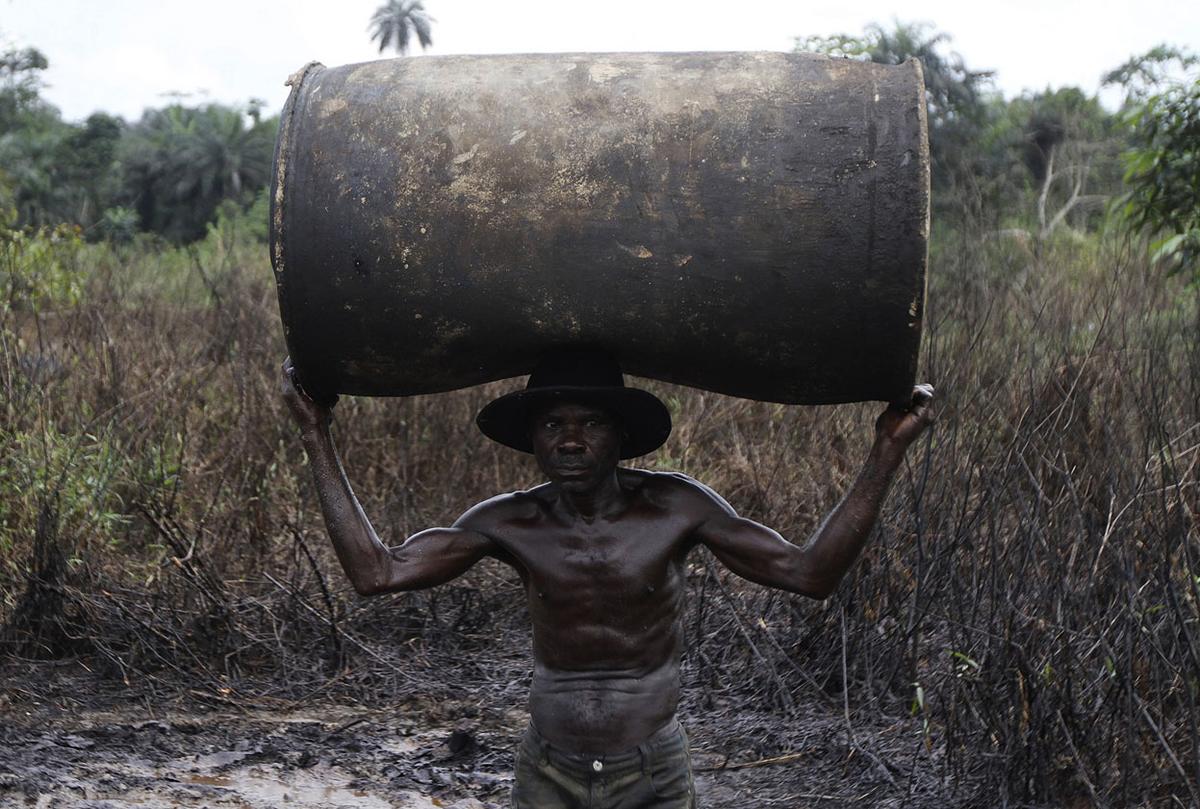The recent order by President Muhammadu Buhari for the Nigerian National Petroleum Corporation (NNPC) and the Nigerian Petroleum Development Company to take over the Oil Mining Lease (OML) 11 located in Ogoni, Rivers State previously operated by the Shell Petroleum Development Company, will negatively affect the already poor performing oil and gas sector. It will strengthen the monopoly of NNPC throughout the sector rather than open it up to competition and make petroleum products more affordable to Nigerians.
Nigeria is the largest oil producer in Africa and the sixth largest in the world. But unfortunately, state regulations and monopoly like this one have stopped the country from fully reaping the benefits of its oil wealth.
NNPC is too Corrupt to be Trusted
The Nigerian government based the termination of its contract with Shell on a case that indicted the company in a massive oil corruption scandal. The government sued it for allegedly paying $1.1 million in bribe to get an Oil Prospective Lease (OPL). But if Shell is sacked based on corruption charges, NNPC is not the right organization for a takeover.
[perfectpullquote align=”right” bordertop=”false” cite=”” link=”” color=”” class=”” size=””]Having NNPC take over the Ogoni rigs from Shell is another evidence of the Buhari administration’s attempt to nationalize the entire oil and gas sector, and beyond.[/perfectpullquote]
Last November, the lower house of the National Assembly summoned the General Managing Director of NNPC and two other firms over the missing of ₦91 trillion in oil revenue—an enormous amount of money that could service the country’s budget for up to twelve years. It was rocked by another corruption scandal within the same period when ₦50 billion disappeared from its account, which was after it had failed to remit yet another ₦4 trillion to the federal government.
Also in September 2018, the police recovered $470.5 million from the NNPC’s Brass Liquefied Natural Gas hidden in some commercial banks across the country. Another independent investigation by the Natural Resource Governance Institute (NRGI) revealed that over $32 billion oil revenue was lost to NNPC’s mismanagement of the Domestic Crude Allocation. NRGI claimed the state corporation was involved in “opaque revenue retention practices and corruption-ridden oil-for-product swap agreements.”
[perfectpullquote align=”right” bordertop=”false” cite=”” link=”” color=”” class=”” size=””]The Ogoni people of the Niger Delta recently contended Buhari’s order. They claimed Ogoni landowners are entitled to consultation and recommendation as to who should be permitted to drill on their soil.[/perfectpullquote]
The investigation concluded that Nigeria would have been buoyant enough to finance its 2015 budget of ₦4.36 trillion and still be able to pay-off external debts up to ₦2.03 trillion if such money were accounted for by the NNPC. If this is the same corporation the presidency is trusting to fix all the undoings of Shell, then he might want to have a rethink.
Nationalization is not in Nigeria’s best Interest
Having NNPC take over the Ogoni rigs from Shell is another evidence of the Buhari administration’s attempt to nationalize the entire oil and gas sector, and beyond. Nationalization is simply giving the government an exclusive control of this vital sector and it will only be detrimental to oil production and revenue in the long run.
The government will dictate the price of oil rather than allow the market to take its course. With a fixed price, which will most likely be high, Nigerians will have no alternative to NNPC’s oil. But only competition will create better oil products at affordable prices. This attitude of Nationalization, however, is not a new habit of the Nigerian government.
In 1969 the Mineral Oils Ordinance was repealed and replaced with the Petroleum Decree and section 1 of the decree reserved the ownership of all petroleum asset to the federal government by allowing the Minister of Petroleum an exclusive right to give license to any company at his discretion. As one would have predicted, this power has been abused. The case against former Minister of Petroleum, Alison Madueke is a recent example of such abuse. Madueke is facing charges both in Nigeria and in the United Kingdom for suspected bribery and money laundering.
The military government of General Abdulsalam Abubakar in 1999 adopted this decree as an act and it became a law in the constitution. Changing the decree into an act and allowing the oil minister such enormous power set a bad precedent the current administration is following. Privatization, on the other hand, improves efficiency since private companies already know their profit lies in the quality of their products and how affordable they are.
NNPC’s control will Lead to more Violence in the Niger Delta
This order will deny landowners in the concerned areas the rights to their lands. They already had enough problems with Shell over environmental pollution. The Nigerian government should not compound their woes.
The Ogoni people of the Niger Delta recently contended Buhari’s order. They claimed Ogoni landowners are entitled to consultation and recommendation as to who should be permitted to drill on their soil. Many have left their homes because of the harsh economic effects of oil pollution; they cannot fish, farm or hunt. It will not be surprising if they respond with pipeline vandalization or other forms of militancy if the Buhari administration remains defiant.
This ground standing by the Nigerian government against the reservation of the Ogoni people is not healthy for national security and the oil sector is best deregulated.
Abdullah Tijani is a Writing Fellow at African Liberty and Local Coordinator at Students For Liberty. He is a law student at the Usmanu Danfodiyo University, Sokoto, Nigeria. He’s on Twitter @AbdullahAtijani.

